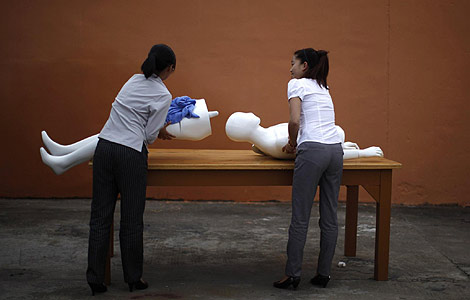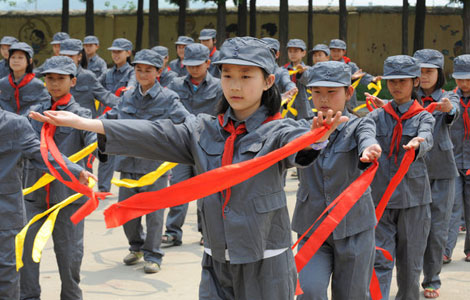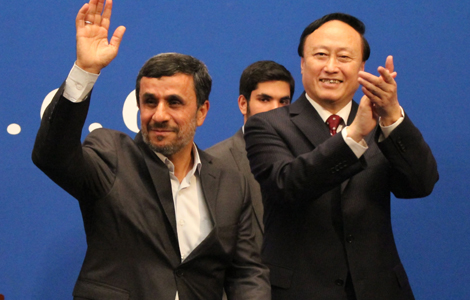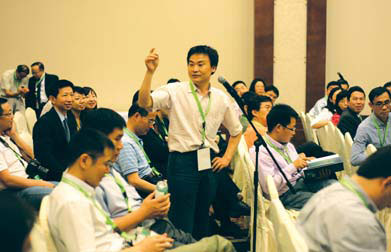Nation hopes to lure back biotech talent
Updated: 2012-06-05 08:06
By Xu Xiao in Chengdu (China Daily)
|
|||||||||||
|
A returning professional shares his experience on the environment for research in Chengdu. |
At the World Biomaterials Congress in Chengdu, China's scientific leaders brainstormed on ways to encourage researchers who have gone abroad to return to work in their homeland.
"If some of you want to come back, now is the best time," said Sun Wei, professor of the engineering department of Tsinghua University and scholar of China's Talent 1,000 Plan.
The Talent 1,000 Plan, initiated in 2008, aims to attract about 1,000 Chinese scholars and experts to return from studies or jobs overseas to work for the country's major research projects, State-owned enterprises and high-tech industrial zones in the next five to 10 years.
Sun said the booming biomaterials industry is one that holds promise for many talented people. He said he has witnessed the fast growth of China's biomaterials industry in the past two years.
The Ministry of Science and Technology and the National Development and Reform Commission are planning to give strong financial support to talented Chinese professionals from overseas who have good proposals and ideas, Sun said.
Chen Guoping, a scholar from the National Institute for Materials Science in Japan, said that "Chinese officials are attaching great importance to biomaterials science".
He said Chengdu's selection as the host of the World Biomaterials Congress shows the rapidly growing strength of the city in this sector as well as that of the entire country.
Wang Wenxin, from the National University of Ireland, said he was surprised to learn about the great changes that have taken place in China.
A graduate of Sichuan University, he said he has not been in China for three years. Wang hopes domestic and foreign scientists can deepen cooperation among each other.
Huang Shiwen, of the Laboratory of Biomedical Polymers at Wuhan University, said China is providing more and more opportunities for lab experiments.
The Laboratory of Biomedical Polymers in Wuhan University is a key lab approved by the Ministry of Education in December 2003.
About 20 years ago, the government budget for a lab experiment program was about 30,000 to 60,000 yuan, Huang said. Now the average budget is 800,000 yuan.
"Hardware conditions for basic research are becoming better and better," he said.
Chengdu's well-known Sichuan University, also one of the venues of the congress, is welcoming Chinese experts to return from overseas.
A delegate from the human resources department of the university said they are recruiting those who can boost the school's development.
"But we also fully understand the situations of some overseas Chinese scholars who are reluctant to come back," the delegate said. "We embrace those who want to come back. We also look forward to cooperating with those who stay overseas."
According to a talent-introduction plan made by the Chengdu city government in late 2011, the city will introduce some 1,000 high-level Chinese experts from overseas over the next five to 10 years to the city's high-tech and strategic emerging industries.
Currently, Chengdu has more than 4,000 Chinese experts who have returned from overseas. Returned experts have established 314 high-tech enterprises in the city's high-tech zones. Twelve of them were included in the national Talent 1,000 Plan, and 26 were selected for a similar provincial program.
xuxiao@chinadaily.com.cn
(China Daily 06/05/2012 page7)
Hot Topics
iphone,shenzhou,taiwan,hiv,school bus,house,hk,tibet,rare earth
Editor's Picks

|

|

|

|

|

|








